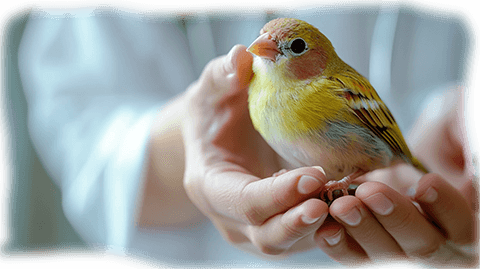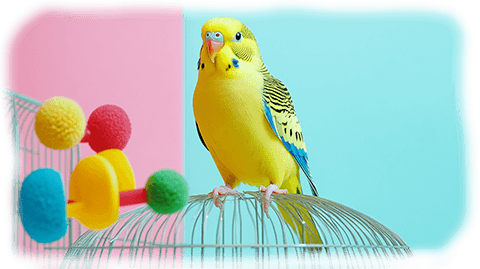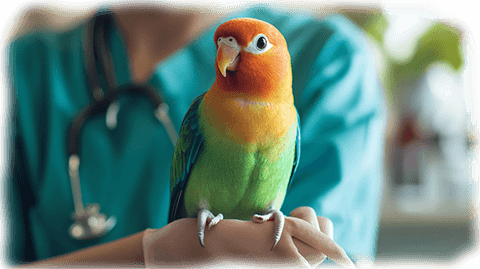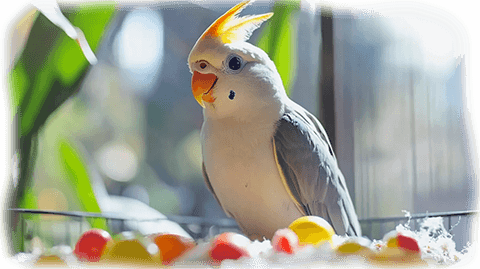Canary Health: Essential Care and Tips for a Happy Bird
Canaries are delicate birds that thrive in the right environment with proper care. While they are relatively easy to care for, they are prone to certain health issues that can be prevented or managed with good husbandry practices. In this guide, we will explore common health problems in canaries, tips for prevention, and signs that your bird may need veterinary attention.
Common Canary Health Problems
Canaries, like all birds, can suffer from various health conditions, particularly if their environment and diet are not ideal. Below are some of the most common health issues canaries face and tips on how to prevent them.
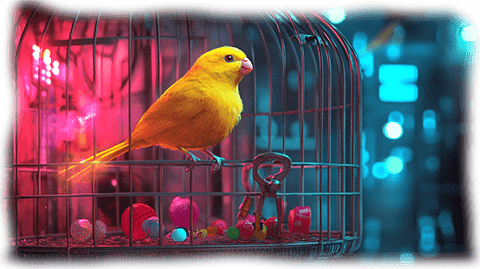
Respiratory Problems
Canaries are sensitive to changes in air quality, which can lead to respiratory problems. These can arise from exposure to drafts, smoke, strong odors (such as perfumes or cleaning products), and poor ventilation.
- Signs to watch for – Labored breathing, tail bobbing, wheezing, sneezing, or open-mouth breathing.
- Prevention tips – Keep your canary’s cage in a well-ventilated area, free from drafts and away from strong-smelling substances. Avoid smoking or using aerosol sprays near your bird.
Feather Plucking or Molting Issues
Feather plucking or improper molting can occur if your canary is stressed, bored, or suffering from nutritional deficiencies.
- Signs to watch for – Bald spots, excessive preening, or feathers falling out in patches.
- Prevention tips – Ensure your canary has a balanced diet rich in vitamins and minerals, provide mental stimulation with toys, and maintain a regular molting schedule. If molting seems abnormal or prolonged, consult a vet.
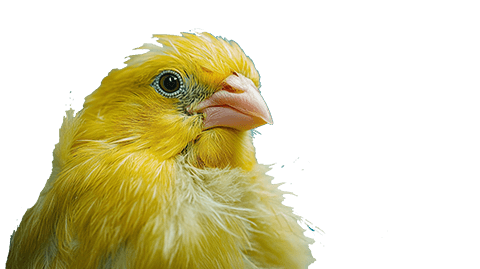
Obesity
While small, canaries can still become overweight if fed an improper diet or given too many seeds (which are high in fat). Obesity can lead to heart and liver problems.
- Signs to watch for – Excessive weight gain, difficulty flying, or lethargy.
- Prevention tips – Offer a variety of foods, including fresh fruits, vegetables, and a high-quality pellet diet. Limit seed intake to avoid excess fat consumption. Provide space for your canary to fly and exercise.
Egg Binding (in Females)
Egg binding occurs when a female canary is unable to lay her egg due to calcium deficiency, lack of exercise, or poor nutrition. This condition is an emergency and requires immediate veterinary attention.
- Signs to watch for – Straining, sitting at the bottom of the cage, swelling around the abdomen, or lethargy.
- Prevention tips – Ensure female canaries receive enough calcium through their diet, especially during breeding or molting seasons. Cuttlebone is an excellent calcium supplement for birds.
Bumblefoot
Bumblefoot is a bacterial infection that affects the feet of canaries, often caused by improper perching surfaces or poor hygiene in the cage.
- Signs to watch for – Swollen, red, or painful feet; limping or reluctance to perch.
- Prevention tips – Provide your canary with soft, varied perches (Amazon affiliate link) to avoid putting too much pressure on one area of the feet. Keep the cage clean and dry, and check your bird’s feet regularly for signs of irritation.
Tips for Maintaining Your Canary’s Health
The key to a healthy canary is preventive care and attention to their living environment. Below are some general tips to ensure your canary stays in good health:
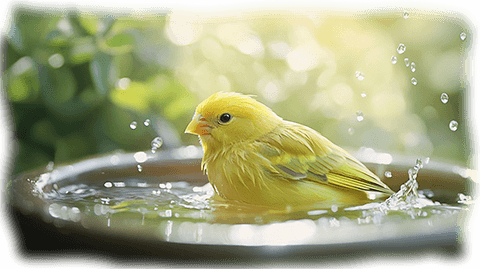
- Diet – Offer a balanced diet (Amazon affiliate link)that includes a variety of seeds, fresh vegetables, and high-quality pellets. Incorporate fruits like apples and berries to provide vitamins and antioxidants. Avoid sugary or fatty treats.
- Clean Water – Change your canary’s water daily, as bacteria can grow quickly in stagnant water. Ensure the water dish is free of debris and feces.
- Regular Cage Cleaning – Clean your canary’s cage (Amazon affiliate link)regularly to prevent bacterial growth and infections. Replace the lining of the cage daily, and wash perches, food dishes, and toys weekly with bird-safe disinfectants.
- Exercise and Mental Stimulation – Canaries need plenty of exercise and mental stimulation to stay healthy. Ensure the cage is large enough for your bird to fly short distances and add toys or swings to keep them entertained.
- UVB Lighting – Canaries benefit from exposure to natural light or UVB lighting, which helps them synthesize vitamin D3, essential for calcium absorption and bone health. (Amazon affiliate link)
- Observation – Watch your canary daily for any changes in behavior, eating habits, or appearance. Early detection of issues can prevent more serious health problems.

When to Visit the Vet
If you notice any of the following signs, it’s important to seek veterinary attention for your canary:
- Lethargy – A normally active bird sitting still for long periods is a sign of illness.
- Loss of Appetite – Canaries that stop eating or drinking require immediate attention.
- Labored Breathing – Any signs of breathing difficulty, wheezing, or tail bobbing indicate respiratory issues.
- Unusual Droppings – Changes in the color, consistency, or frequency of droppings can signal digestive problems or illness.
- Excessive Molting – If your canary is losing feathers excessively or appears stressed during molting, it could indicate a nutritional or health issue.
Regular check-ups with an avian vet are recommended to ensure your canary remains in top health. Preventive care and early detection are essential for keeping your bird happy and healthy.
Further reading: “Canary Health” (Amazon affiliate link) by Dr. Rob Marshall.
Affiliate Disclosure
This post may contain affiliate links, which means I earn from purchases made through links. Please see the privacy policy page for more details.

